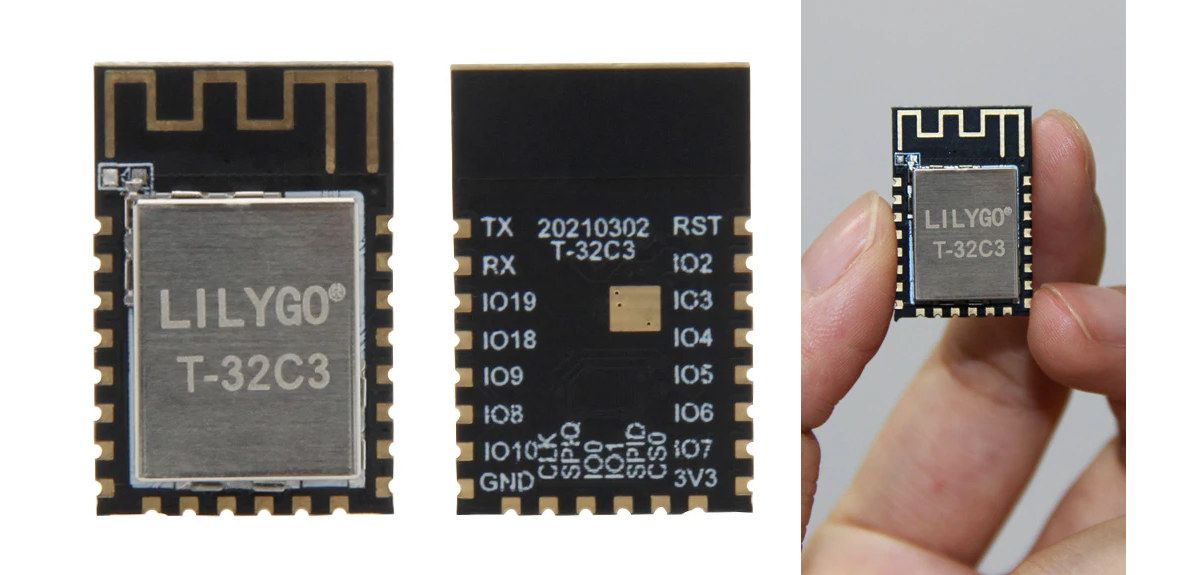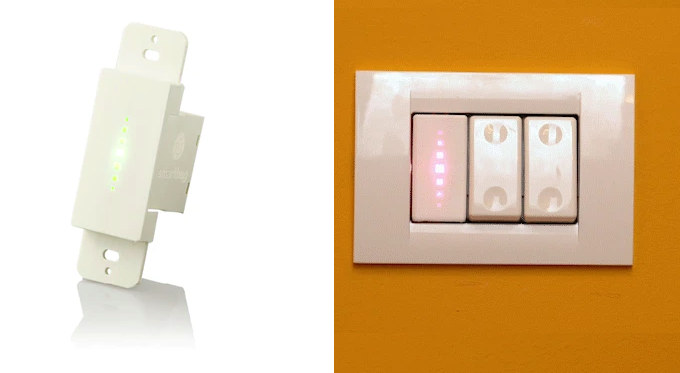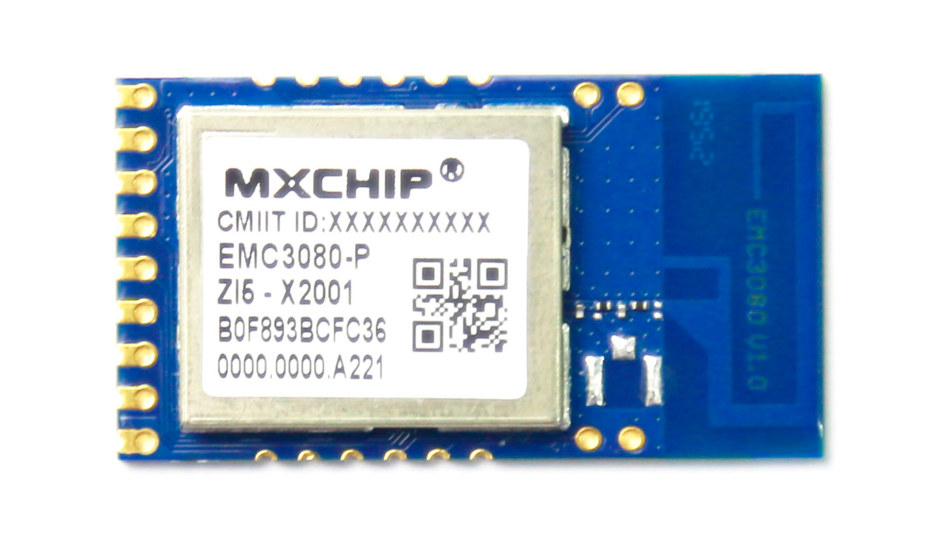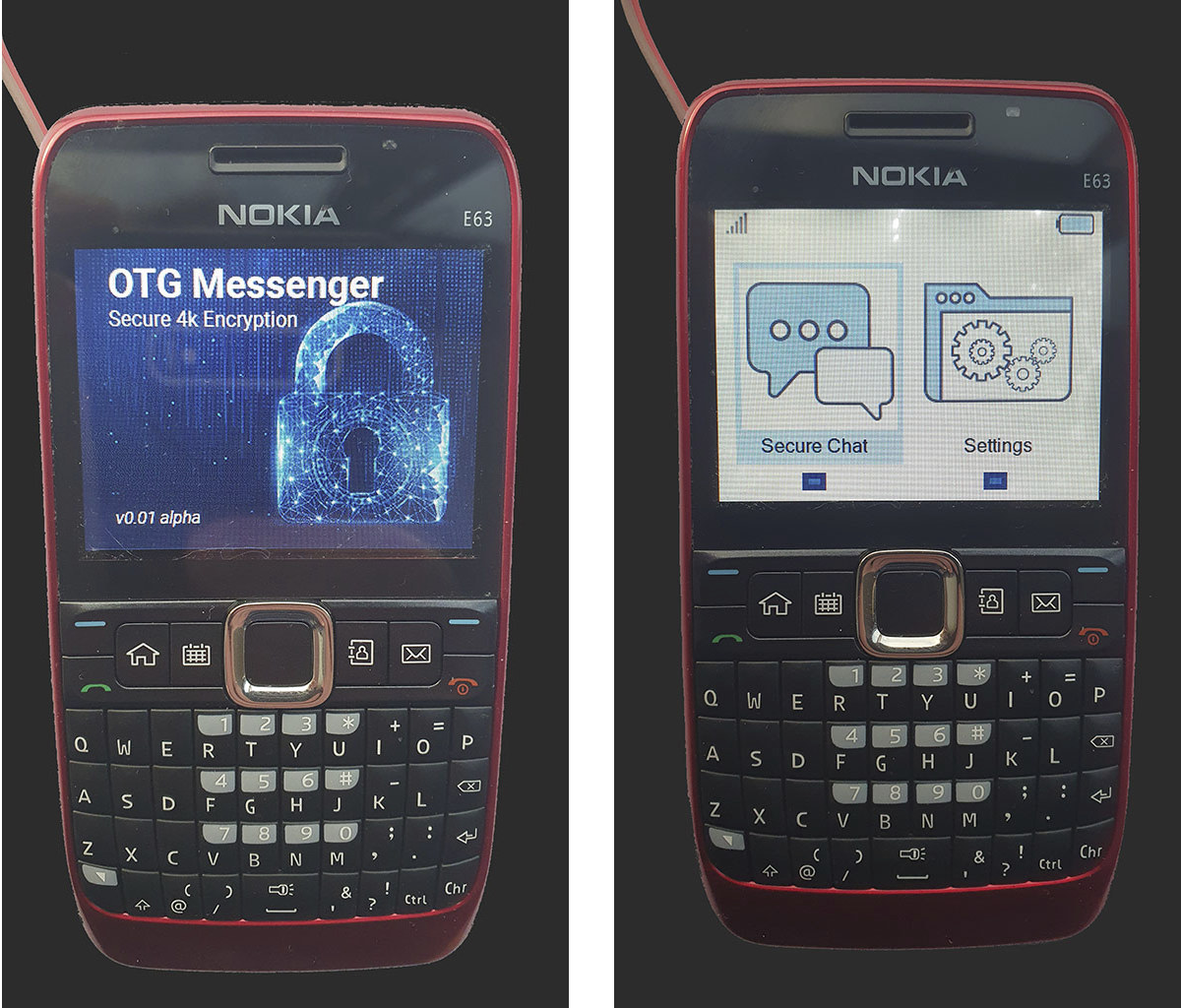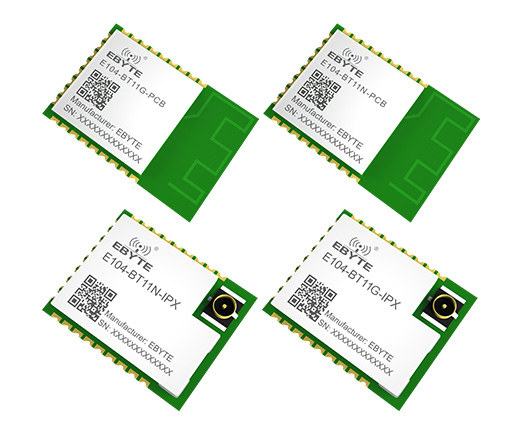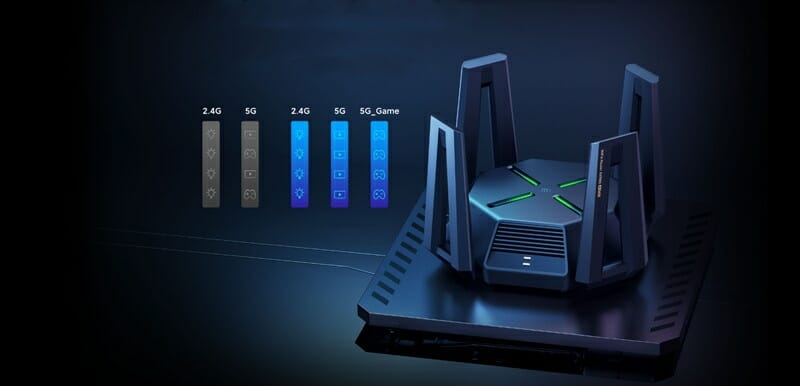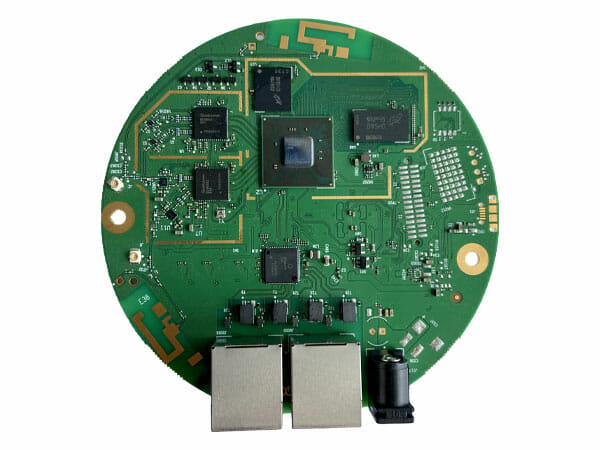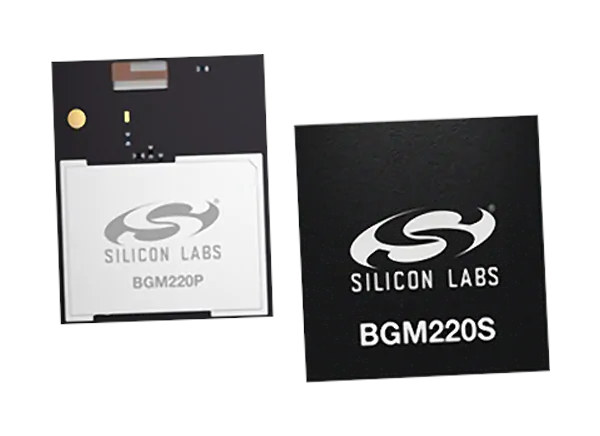We’re slowly starting to see more hardware-based on ESP32-C3 RISC-V processor, and LILYGO T-32C3 is a compact module based on the WiFi & Bluetooth LE processor that includes 4MB flash and a PCB antenna. I’d expect T-32C3 to be eventually found in the company’s smartwatches and development boards, and it joins other ESP32-C3 modules from AI Thinker. LILYGO T-32C3 module specifications: SoC – Espressif ESP32-C3 RISC-V processor @ 160 MHz with 400 KB SRAM, 384 KB ROM, 8KB RTC SRAM, 2.4 GHz WiFi 4, Bluetooth 5.0 LE & Mesh Storage – 4MB flash On-board PCB antenna I/Os – 22x castellated holes with GPIO, 3x ADC, SPI, UART, I2C, Boot, Reset, 5V, 3.3V, GND Dimensions – 23 x 11 x 3.5 mm (4-layer PCB) Note the USB interface is not listed in the specs, but USB DN and DP signals are located on GPIO18 and GPIO19 so USB should also be […]
SmartBug smart switch integrates neatly into in-wall sockets (Crowdfunding)
SmartBug is a smart switch based on ESP32 wireless SoC, equipped with several sensors to measure temperature, humidity, power usage, and listen to sounds. It is designed to fit neatly into most in-wall sockets found around the world. Each SmartBug relies on mesh networking to communicate with each other and extend the range, WiFi for Internet connection, and Bluetooth low energy (BLE) to control additional devices without the need for any additional hub. SmartBug’s key features: MCU – 32-bit dual-core microcontroller with WiFi, wireless mesh, Bluetooth LE Connectivity 2.4GHz WiFI 4 Wireless mesh to let SmartBug act as a signal repeater Bluetooth 4.0 and BLE to control home appliances Audio Digital microphone for voices commands, baby crying (only enable if the plugin is downloaded in the app). Buzzer On-Off Relay up to 2200W, both AC and DC. Sensors – Temperature & humidity sensor, built-in power meter (current, voltage, and power) […]
$2 MXCHIP EMC3080 WiFi and Bluetooth LE IoT module integrates Cortex-M33 MCU
While nowadays most people from the maker community are working with ESP8266 or ESP32 modules or boards for IoT projects requiring Bluetooth LE and/or WiFi connectivity, we’ve also covered some low-cost alternatives such as Bouffalo Labs BL602 or Realtek RTL8710. MXCHIP EMC3080 module offers yet an alternative with 2.4 GHz 802.11 b/g/n WiFi and Bluetooth LE 4.2/5.0. Where it differentiates against other solutions is that it features a more secure Cortex-M33 core clocked at 100 MHz, as found in UNISOC V5663 and Ameba RTL8722DM wireless SoCs, but still getting a fairly low price tag of $2.35 on Seeed Studio, which drops to $2.10 per pieces for orders of 10 or more units. MXCHIP EMC3080 module specifications: MCU – MX1300CF Cortex-M33 processor at up to 100 MHz with 256KB SRAM, 2MB XIP flash, 384 or 512 bytes OTP memory Connectivity WiFi 802.11 b/g/n 1T1R WiFi @ 2.4GHz Single Frequency HT20 support […]
Nokia E63 phone converted into LoRa messenger for secure, off-the-grid communication
While LoRa radios are mostly designed to transmit data from sensors and to actuators, there have been attempts to leverage LoRa for messaging in the past with, for instance, the Meshtastic Mesh Networking Project to help hikers exchanged their GPS coordinates or other short messages, the Raspberry Pi Pico powered PICOmputer with QWERTY keyboard, display, and a LoRa module, and Pine64 is also working on developing LoRa hardware for messaging. Trevor Attema decided to repurpose his Nokia E63 Blackberry-like phone with a custom STM32H7 board with a LoRa radio while keeping the enclosure, display, backlighting, keyboard, and speaker which he calls the Off The Grid Messenger, or OTG Messenger for shorts. The custom board also adds Microchip ATECC608 crypto authentication chip for encrypted messages, and the LoRa Messenger would allow a theoretical transmission range of 16 kilometers in line of sight which would allow a small group of people to […]
Ebyte E104-BT11 Bluetooth Mesh module features Silicon Labs EFR32MG21 MCU
Ebyte E104-BT11 is a Bluetooth Mesh module offered in four variants with support for gateways (G) and node (N) versions, as well as PCB or IPEX antenna versions. Interestingly it is based on Silicon Labs EFR32MG21 Cortex-M33 microcontroller also found in ITEAD Zigbee 3.0 USB dongle, so it’s not impossible that it could be repurposed for Zigbee or Thread with firmware from Silabs. Ebyte E104-BT11 module specifications: Wireless MCU – Silicon Labs EFR32MG21 Arm Cortex-M33 microcontroller @ up to 80 MHz with DSP and FPU, up to 1024 kB flash, up to 96 kB RAM, 2.4 GHz IEEE 802.15.4 for Bluetooth LE, Zigbee, or Thread Wireless connectivity Bluetooth Mesh/BLE support with default firmware, up to 10,922 devices supported Max Tx power – 20 dBm Rx sensitivity- -88 to -97 dBm (-97 dBm typ.) Max data rate – 1Mbps Antenna – PCB antenna up to 200-meter range, or IPX antenna up […]
Xiaomi Mi AX9000 WiFi 6 Enhanced router supports up to 1000 clients
Xiaomi launched the Mi AX6000 WiFI 6 Enhanced router, not to be confused with WiFI 6E, at the beginning of the year. The router offers up to 4804Mbps link at 5 GHz, and up to 574Mbps with a 6+1 antenna configuration, as well as one 2.5GbE port, and several Gigabit Ethernet ports. But for people requiring even more bandwidth, Xiaomi Mi AX9000 WiFi 6 Enhanced router offers even more wireless throughput using three frequency bands with four antennas each, and up to 1148 Mbps at 2.4 GHz, up to 4804Mbps at 5.2GHz, and up to 2402Mbps at 5.8GHz, which the company refers to as the 5G_Game band. Xiaomi Mi AX9000 WiFI 6 Enhanced Edition router specifications: SoC – Qualcomm IPQ8072 quad-core Cortex-A53 processor @ 2.2 GHz with dual-core 1.7GHz NPU (network acceleration engine / processing unit) System Memory – 1GB RAM Connectivity Wired 1x 2.5GbE LAN/WAN port 1x Gigabit Ethernet […]
Qualcomm IPQ6000 embedded SBC offers dual Gigabit Ethernet and WiFi 6 connectivity
At the beginning of the month, we covered Mango-DVK development kit based on a Qualcomm IPQ6000/IP6010 powered system-on-module enabling 2.5GbE and WiFi 6 connectivity. Wallys Communications contacted us earlier this week, about one of their new “802.11ax low-end product”, namely DR6000 SBC that happens to be based on Qualcomm IPQ6000 “CP03” reference design, and offers both WiFi 6 and dual Gigabit Ethernet connectivity in a round-shaped board. DR6000 / CP03 specifications: SoC – Qualcomm Atheros IPQ6000 quad-core Arm Cortex-A53 processor @ 1.2GHz processor System Memory – 512MB DDR3L Storage – 128MB Nand Flash, 16MB NOR flash Networking Wired – 2x Gigabit Ethernet RJ45 ports Wireless 2.4GHz 2×2 MU-MIMO OFDMA 802.11b/g/n/ax WiFi 6, up 573 Mbps, up to 20dBm per chain 5GHz 2×2 MU-MIMO OFDMA 802.11a/n/ac/ax WiFi 6, up to 1201 Mbps, up to 20dBm per chain 2x U.FL Connectors, diplexer allows dual band concurrent operation USB – 1x micro USB […]
Silicon Labs Introduces Bluetooth 5.2 BGM220S SiP and BGM220P PCB Module
Silicon Labs has recently announced two hardware modules based on the company’s BG22 secure Bluetooth 5.2 SoC, namely BGM220S System-in-Package (SiP) measuring just 6x6mm, and BGM220P, a slightly larger PCB variant optimized for wireless performance along with a better link budget for greater range. Both modules can be integrated into products with up to 10-year battery life from a single coin cell. All BGM220S/P variants can support Bluetooth Direction Finding and some of the parts can also handle Bluetooth Mesh Low Power protocol. Silicon Labs BGM220S/P key features: Wireless SoC – Silicon Labs EFR32BG22 Arm Cortex-M33 with DSP instructions and floating-point unit, up to 512 kB Flash, 32 kB RAM, 2.4 GHz radio with TX power up to 8 dBm, and Embedded Trace Macrocell (ETM) for advanced debugging Supported Protocols Bluetooth Low Energy (Bluetooth 5.2) Direction-finding Bluetooth mesh Low Power Node Various MCU peripherals include ADC, up to 25x GPIOs, […]


